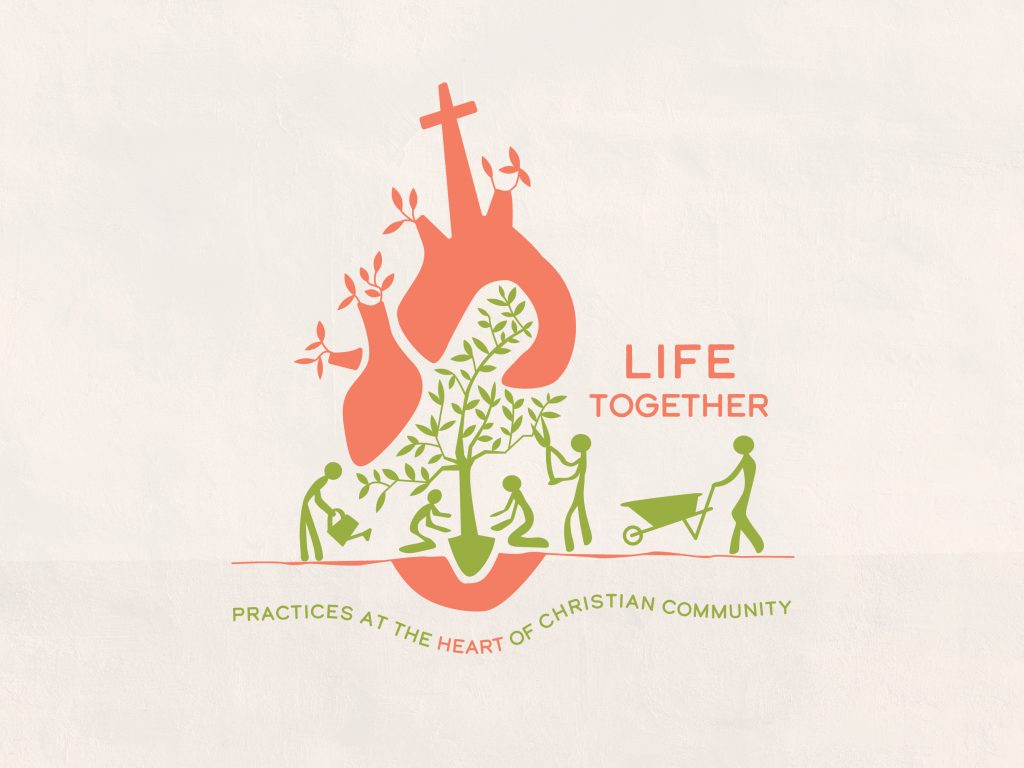Passage: Galatians 1:11-17; 5:13-14, 6:2
Guide for Group Discussion or Personal Reflection
Sermon Summary
Because we are made in the image of the triune God, we are hardwired to live in a close, interconnected community, marked by bearing one another’s burdens.
In Paul’s letter to the Galatians, Paul reminds them of the gospel message, which changed his own life, and which had created this kind of community among them. The gospel declares that God gave us the gift of Christ, without any respect whatsoever to our moral rectitude (or lack thereof), our ethnicity, our social status, or anything at all in us! Paul’s spiritual accomplishments as a Pharisee did not qualify him for the gift of Christ, and his persecution of the early church did not disqualify him from the gift (1:11-17)—the gift was simply given! This gift creates an entirely new kind of community among those who believe it, because it erases all previous markers of merit and status, leveling the playing field for all.
The Christian community, then, expresses this gift among themselves and to a watching world. We don’t use our gospel freedom “as an opportunity for the flesh,” but instead serve one another in love (5:13-15), which looks, practically, like “bearing one another’s burdens” (6:2). The gospel motivates us to draw close to others and help bear their burdens, because Christ drew close to us, and bore the burden of our sins. At the same time, the gospel gives us the humility to let others bear our burdens as well.
Ultimately, we bear our brothers’ and sisters’ burdens, and let them bear ours, because doing so draws us deeper into relationship with them. Christ himself modeled this, as he called his disciples “friends,” inviting them to share the emotional burden of his unfolding mission, before himself bearing the ultimate burden of our sin—and all for a relationship with us!
Sermon Outline
- The Gift of Christ Creates Christian Community (1:11-17)
- The Community Expresses the Gift (5:13-15; 6:2)
Group Discussion & Personal Reflection Guide
Re-read the passage (Galatians 1:11-17; 5:13-14, 6:2)
The Gift of Christ Creates Christian Community (1:11-17)
Q) Have you ever been a part of a group or organization where the members seemed highly concerned about their own status, position, and reputation? What was it like? Have you ever been a part of a group where people seemed unconcerned about their own status, position, and reputation? What was it like?
Q) Meditate on Galatians 1:11-17. In these verses, Paul describes his “former life,” for the purpose of showing that none of it contributed to, or detracted from his current, standing with God, by grace:
- What were the “positive aspects” of Paul’s former life—aspects he may have been tempted to boast about? What were the “negative aspects” of Paul’s former life—aspects he might have been ashamed of?
- How does Paul describe his conversion? How does this description highlight the gracious intervention of God?
- How does Paul describe his call to ministry/apostleship? How does this description highlight the supernatural intervention of God?
Q) In his sermon, Pastor Bobby described how the gift of Christ in the gospel creates a “new kind of community” by rendering previous markers of merit and status meaningless. Why is the removal of merit and status so important in creating a community who serves one another in love?
The Community Expresses the Gift (5:13-15; 6:2)
Q) Re-read Galatians 5:13-14. What does Paul mean when he commands us not to “use our freedom as an opportunity for the flesh”? How does the gospel, and the Holy Spirit, help us not to do this?
Q) Re-read Galatians 6:2. Is there an area of your life where you are feeling led to help bear someone else’s burden? Practically, would it look like to do so? What aspect of their “burden” would be transferred on to you?
Q) Pastor Bobby said that bearing someone else’s burdens will inevitably involve becoming burdened yourself (or else we haven’t truly borne a burden!) In what area of your life (e.g. in your schedule, your finances, your free time) are you most fearful or hesitant of becoming additionally “burdened”? Why?
Q) Most of us know Christians who have experienced burnout, because they haven’t learned to say “no” to others’ requests for help. How might we discern when it is right to say “no” (out of a respect for our limits, need for rest, etc) and when it is wrong to say “no” (out of selfishness, self-preservation, etc)?
Q) Where can somebody else help you to bear your burdens? What, if anything, is stopping you from asking for, or accepting help in this area? AND/OR: Have you ever experienced a time when someone helped bear your burdens in a sacrificial way? What did they do, and what effect did it have on your relationship?
Q) We are part of a church that includes people from all different backgrounds and walks of life. Imagine together what it could look like, practically, for:
- Older generations and younger generations to “bear one another’s burdens”
- Single people and families to “bear one another’s burdens”
- Men & women to “bear one another’s burdens”
- Church leaders and laypeople to “bear one another’s burdens”
- Wealthier people and people who are struggling financially to “bear one another’s burdens”
Additional Application Questions
Q) How else would you like to engage with God this week?
Q) How can you tangibly care for those in your community this week, both inside and outside of the church?
Prayer
Spend time praying for yourselves, our church community, the North Shore community, and our nation and world—particularly those most vulnerable.

